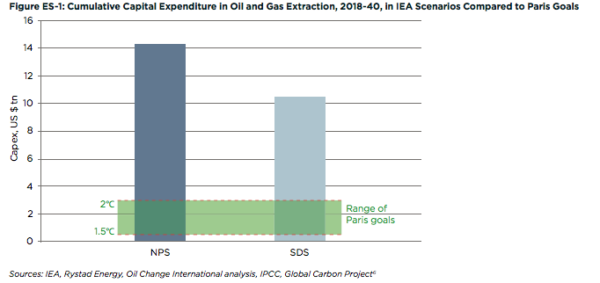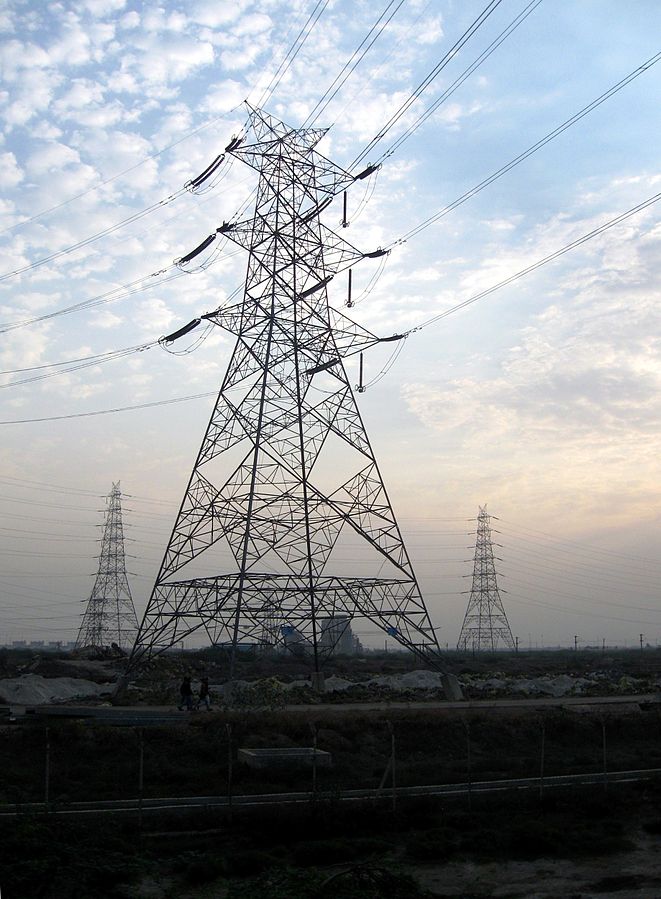With as many as 30 member states, all of which have signed the Paris Agreement, the International Energy Agency (IEA) is seen as the world’s most influential source of energy information, which has the power to shape government decisions on energy policies and investments around the globe.
Although it has not failed to underline the importance of the rapidly falling costs of renewables, labeling solar as the cheapest energy generation source over the next 25 years, the IEA’s scenarios for deployment have been regularly criticized for being too conservative.
Moreover, in the latest report drafted by Oil Change International and the Institute for Energy Economics and Financial Analysis (IEEFA), IEA's energy forecasts are described as misguiding, steering government decisions towards levels of fossil fuel that would cause severe climate change.
Discussing the IEA’s “New Policy Scenario (NPS)”, which is commonly used as a roadmap for energy policies and investments (ironically, the IEA has said its projections are based on levels of government support ), the new report titled Off Track: How the International Energy Agency Guides Energy Decisions towards Fossil Fuel Dependence and Climate Change says that emissions under the NPS would make the Paris goals unachievable, exhausting the carbon budget for the 1.5°C target by 2022, and for a 2°C limit by 2034.
The report goes on to state that between 78 and 96% of the NPS' recommended upstream oil and gas investment, amounting to $11.2 trillion to 13.8 trillion over 2018-2040 – is incompatible with the Paris goals.
“The IEA promotes a vision of the future where the world remains dependent on fossil fuels. As a basis for policy and investment decisions, this is in danger of becoming a self-fulfilling prophecy. All 30 of the IEA’s member countries have signed the Paris Agreement, so the IEA should be helping them achieve climate goals, not holding them back,” says Greg Muttitt, Research Director at Oil Change International.
Even the IEA’s alternative “Sustainable Development Scenario“ (SDS), which includes more ambitious emissions pathways than those in the NPS', is not aligned with global climate objectives.
According to the report, emissions under SDS still exhaust the 1.5°C carbon budget by 2023, and 2°C by 2040. It also says that the SDS’ emissions profile is equivalent to the previous 450 Scenario, which aimed to provide only a 50% chance of limiting global warming to 2°C.

Popular content
In a nutshell, the report finds that both of IEA’s scenarios, presented in the EIA’s flagship report World Energy Outlook, envisage continued public funding going to fossil fuels, with investment in oil and gas far exceeding the range of the Paris goals.
“We need to urgently redirect this capital into clean energy. Any other course of action will either lead to substantial stranded assets or levels of climate change that exceed the targets agreed by governments,” Muttitt says.
Responsibilities and conflicts of interest
In addition to conservative forecasts on renewables and the continuing role of fossil fuels, the IEA is slammed for seeking to broaden its country constituency beyond the Organization for Economic Co-operation and Development (OECD) members, as it looks to determine which governments are cutting emissions over the next decades.
The report finds that it is contrary to the principle of Common but Differentiated Responsibilities, that the IEA expects the majority of emissions reductions to occur in non-OECD countries, while understating the needed cuts in IEA full-member countries.
For instance, it points out that according to the SDS, India is expected to cut its 2040 emissions by 46% compared to the NPS, despite its pressing developmental needs, whereas the EU is to reduce its emissions by only 40%.
The report sheds light on another conflict of interest, noting that at least two of the authors of the latest World Economic Outlook were staff on secondment from oil companies, who continued to pay their salaries while they were writing the WEO.
This content is protected by copyright and may not be reused. If you want to cooperate with us and would like to reuse some of our content, please contact: editors@pv-magazine.com.



Secondment of Oil & Gas major personnel at IEA for writing the WEO is a complete unethical choice from the agency. People need to know that these studies are deeply relying on dominant industrial conglomerates